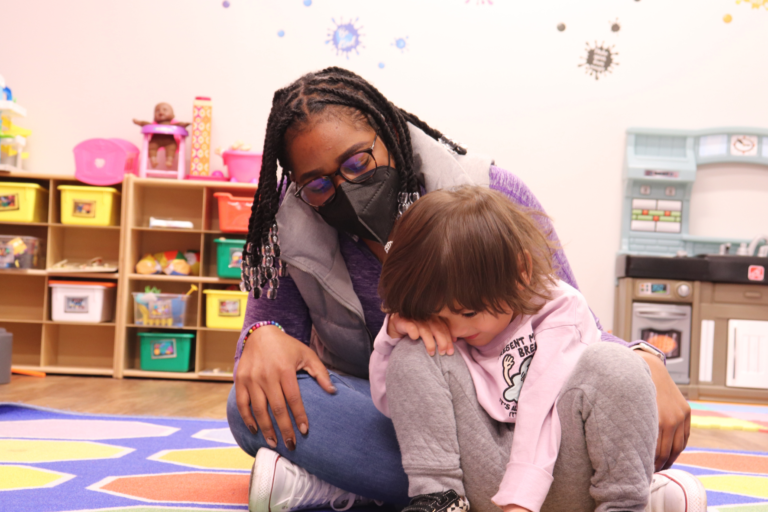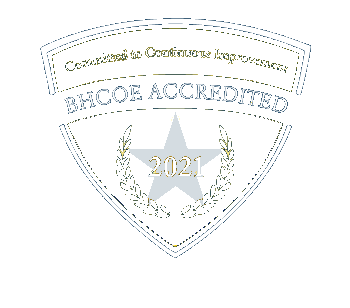According to the Centers for Disease Control, the autism diagnosis rate in the United States is one in forty-four children, meaning many parents are receiving news that their child has autism spectrum disorder (ASD). The process of diagnosing autism is not based on one singular or definitive test. Specialists reach this diagnosis from multiple observations of a child’s play, a child’s interactions, and reviewing a child’s development history. Autism diagnoses over the years have increased, and numerous autism experts attribute the increase in diagnoses to improved screenings and assessments. As a parent, hearing that your child has ASD is never easy, but there are steps, support, and information available to help your child live their best life!
An autism spectrum disorder diagnosis may be intimidating and overwhelming for you as a parent, which is perfectly common. Every parent will react to an ASD diagnosis uniquely. A diagnosis could lead to reactions of panic, fear, denial, or distress. These unsettling reactions may stem from the uncertainty of the situation or questions related to the autism diagnosis. Some parents also may spring into action to immediately find a solution, spurred by a parental instinct. No matter the initial reactions, there are some healthy and positive steps to take that will benefit the child and family!

Take time to accept the diagnosis.
As mentioned above, there may be a wide range of reactions that accompany an ASD diagnosis. Receiving any diagnosis about your child is never simple, so allow yourself to feel any emotions you experience. A parental instinct may kick in to suppress your feelings about a diagnosis but try not to rush through the reaction stage. In some cases, a full and honest reaction may lead to faster acceptance. By accepting an autism diagnosis, you are laying the foundation for a natural and healthy process that leads to hope for the future!
Educate yourself about autism spectrum disorder.
Whether you’re familiar with autism or not, questions are always appropriate. Asking questions allows you to explore options for supporting your child. Questions also help you to have the fullest understanding of your child’s strengths, weaknesses, and needs. Some parents engage in personal research, which is another healthy way to start the conversation. Since ASD is a complicated subject, the research may become overwhelming. Speaking with professionals is a great way to compliment your research. The autism education process may be an outlet of comfort because you’re working towards the goal for finding a path for your child to reach their optimal potential!
Do not allow an autism diagnosis to define your child.
As mentioned above, receiving any diagnosis about your child is difficult, but try to view an autism diagnosis as simply a medical explanation for your child’s certain set of strengths and weaknesses. Your child is above all their own unique person, which is not changed by a diagnosis. They are still the person you love. Every parent wants the best for their child but try not to push your child into a standard development schedule if they’re not ready. Pressure may only add stress for both you and your child.
Build a strong support system for your child, yourself, and your family.
Raising a child with ASD presents unique challenges, so it is important to have a positive support system. This support system can take many forms but should be composed of people you trust. Autism groups, such as your local autism society or parent support groups, are a great option because they offer information, support, and communities. The best support source can be other parents that have children with autism because they are able to provide unique understanding and support.
Keep a healthy life balance.
Learning about autism, developing an autism treatment plan, and attending therapy appointments are all substantial time commitments. It is easy for these tasks consume your family’s life. While these are all important, remember to take family time to relax! Make opportunities to enjoy your lives and participate in fun activities. For your child with autism, try balancing learning opportunities with shared interests.
Make reasonable expectations for your child and focus on individual achievements.
As a parent, your desire for your child to live their best life is perfectly common. In striving for that goal, recognize your child is unique and try avoiding comparisons with their peers. Breaking down large developmental goals into smaller reasonable goals may help alleviate pressure for both you and your child. Keep next steps achievable rather than focusing miles down the road. Celebrate each small accomplishment!
Be responsive to your needs as a parent and person.
Having a child with autism is not easy, so try to dedicate time to your own emotional health. You may have a parental instinct to sacrifice your needs for your child but try not to let that sacrifice take a toll. It may do more harm than good. Emotions such as frustration, fatigue, and helplessness can negatively impact your ability to be a present parent. Take the time to share your feelings and reach out to family and friends for help.
Have hope.
In general, with autism spectrum disorder, behavioral and educational treatments, such as ABA therapy, can make a big difference in your child’s development. As autism research advances, there are further opportunities to help children with ASD. Parental involvement in treatment is essential, so ensure continuous communication with the registered behavior technician (RBT) and Board Certified Behavior Analyst (BCBA).
After receiving an autism diagnosis, allow yourself the time to react to the news. Being honest with your emotions may help you accept the diagnosis. Educating yourself and exploring treatment options will not only positively impact the development of your child but may help settle your uncertainty. Remember, autism diagnoses vary in severity. There are a wide range of treatments, many that help children with autism reach their fullest potential, so there are plenty of reasons to have hope!





